15 Games Like Skyrim You Must Play
If you were as involved with playing Skyrim as I was, you probably felt like it’s the end of the world when you completed the last story-driven quest. Skyrim is a massive open-world action role-playing video game developed by Bethesda Game Studios. The game is the fifth installment in The Elder Scrolls series, a franchise that kept me busy for as long as I can remember.
Skyrim was originally released in 2011, but people are still playing it like crazy. If you’re gaming on a PC, the enormous modding community behind Skyrim will keep you stocked with new playing modes. In the event that you own a next-gen console, make sure to pick up the remastered edition of Skyrim if you didn’t already – it has enhanced graphics, better framerate, and 4k support.
Don’t get me wrong, Skyrim has a lot of replay value. I was shocked with how many things I missed during my second playthrough. But you’ll eventually get bored of being the Dragonborn and shouting “Fus Ro Dah” every chance you get. If you crave a change of scenery without jumping into unfamiliar game mechanics, you’ve come to the right place. We’ve put together a list of 15 RPGs like Skyrim that have similar gameplay aspects. Say goodbye to your free time!
1. Witcher 3: Wild Hunt

- Developer: CD Projekt RED
- Publisher: CD Projekt
- Genre: Open world action RPG (third-person perspective)
- Release Date: May 19, 2015
- Platforms: PlayStation 4, Xbox One, Microsoft Windows
I’m not trying to rile up die-hard Skyrim fans, but the folks from CD Project Red claim that the last Witcher installment has a 20% larger map when compared to Skyrim. Now that I’ve started a new fan war, let’s see if any Witcher game can fill the void left by Skyrim.
Since I have played all the most popular RPGs, I can vouch that you’ll encounter a lot of similar concepts between the two games. For starters, both games have wonderful open-world environments, with roughly the same fantasy atmosphere. Just like in Skyrim, you’ll have a lot of different customizing options and you can approach the same quest in many different ways. You also have a fair amount of player choice that will trigger certain outcomes and affect the ending of the game.
Compared to Skyrim, Witcher 3 doesn’t have that many character creation options. Gerald, the main character uses two swords – a silver sword for fighting monsters and an iron sword for petty humans. Similar to Skyrim, you have your fair amount of magic spells, but nothing as catchy as “Fus Ro Dah”. On the plus side, in Witcher 3 Gerald has a “Revolutionary Dynamic Beard Growth system” – it’s all just fancy words for having to take your character to a barber shop every four quests or so.
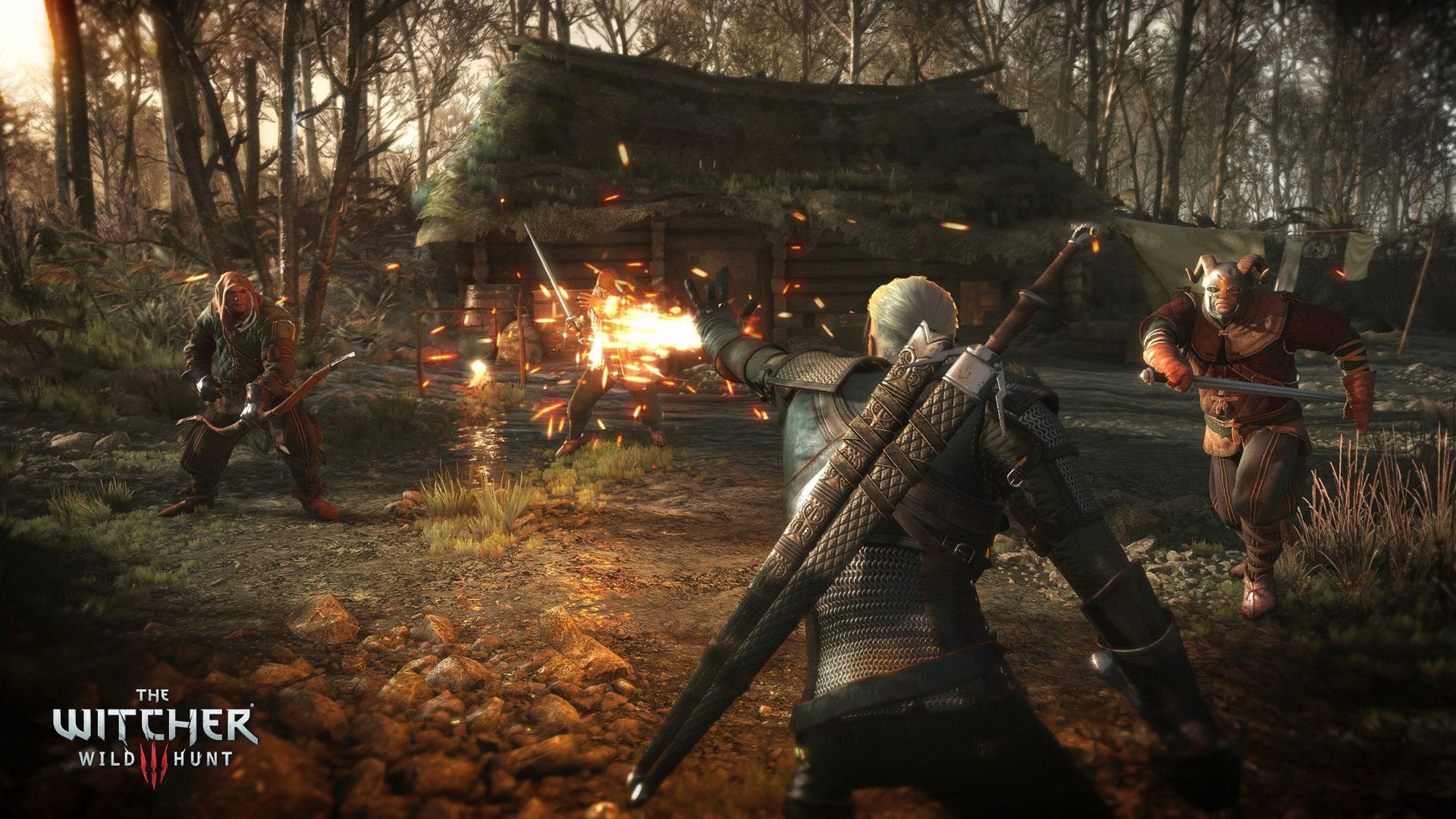
If you decide to immerse yourself in the wonderful world of the witcher, you should know the franchise consists of three different installments. If you want to get the full picture, consider starting with the first game and work your way up to Witcher 3: The Wild Hunt.
2. Fallout 4
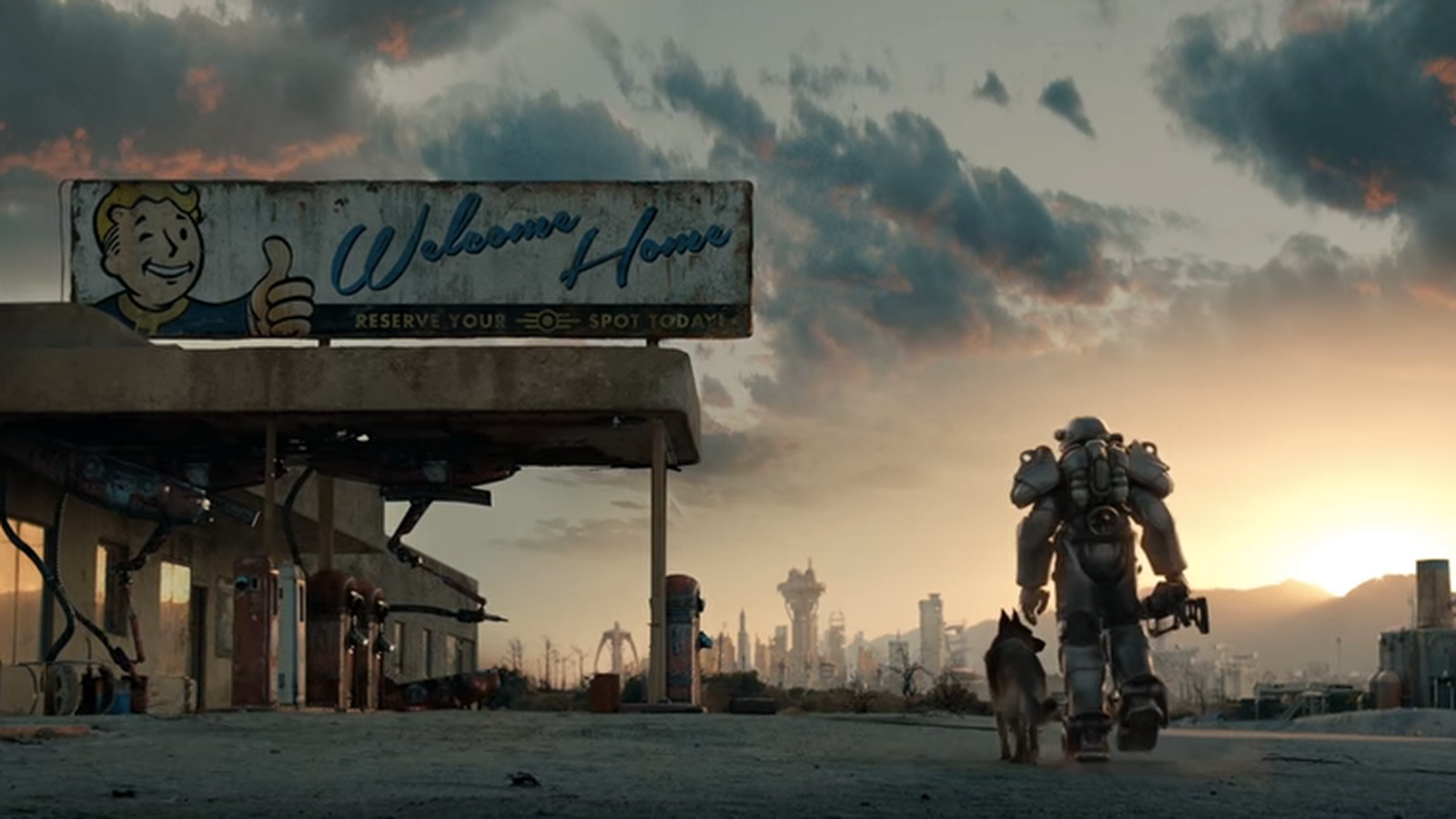
- Developer: Bethesda Game Studios
- Publisher: Bethesda Softworks
- Genre: Open world action RPG (third & first-person perspective)
- Release Date: November 10, 2015
- Platforms: PlayStation 4, Xbox One, Microsoft Windows
Don’t get distracted by the post-apocalyptic set up, this game will remind you of Skyrim every step of the way. Fallout 4 was created by the developers behind Skyrim, so it makes sense that a lot of game mechanics have made their way into this post-apocalyptic RPG. Just like Skyrim, Fallout 4 is highly moddable, so if you decide to play it from a PC you’ll have access to a whole lot of user-made content.
If you liked the leveling-up process in Skyrim, you’ll also love the one in Fallout 4. The key difference is that instead of using swords and wizardry, you’ll make use of miniguns and lasers to earn experience points. Fallout’s post-apocalyptic scenery is mostly grey & brown, nowhere near as beautiful as the world of Skyrim. But if you’re not bothered by endless piles of rubble and mountains of steel, you’ll definitely immerse yourself in the fascinating world of Fallout 4.
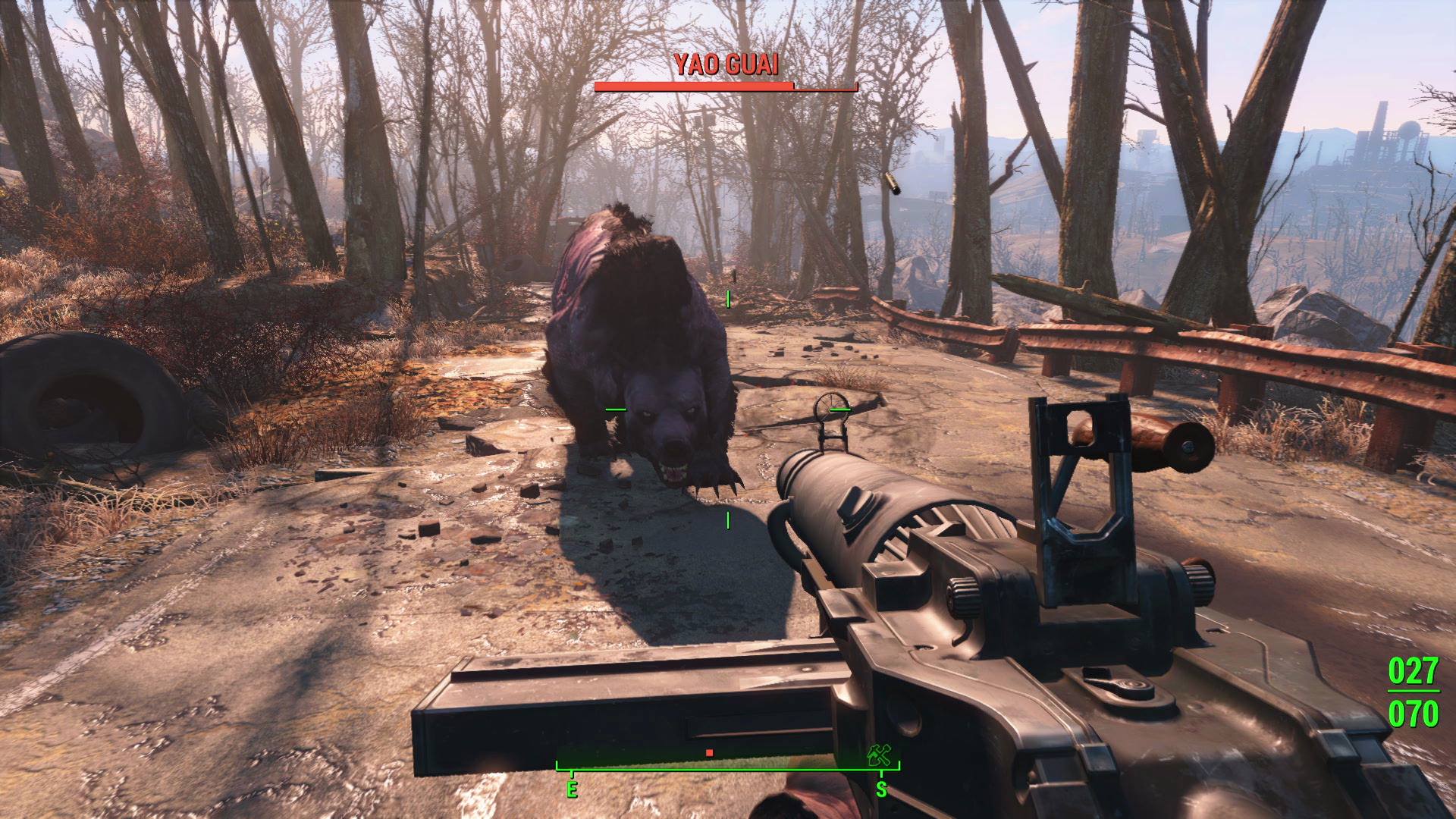
I have to admit that no one does it better than Bethesda when it comes to letting the player carve his own path, and the Fallout series is no different. Fallout 4 will keep you questing, exploring and growing your character just as much as Skyrim did. If you haven’t played the series yet, I suggest you get on with it immediately.
3. Middle Earth: Shadow of Mordor
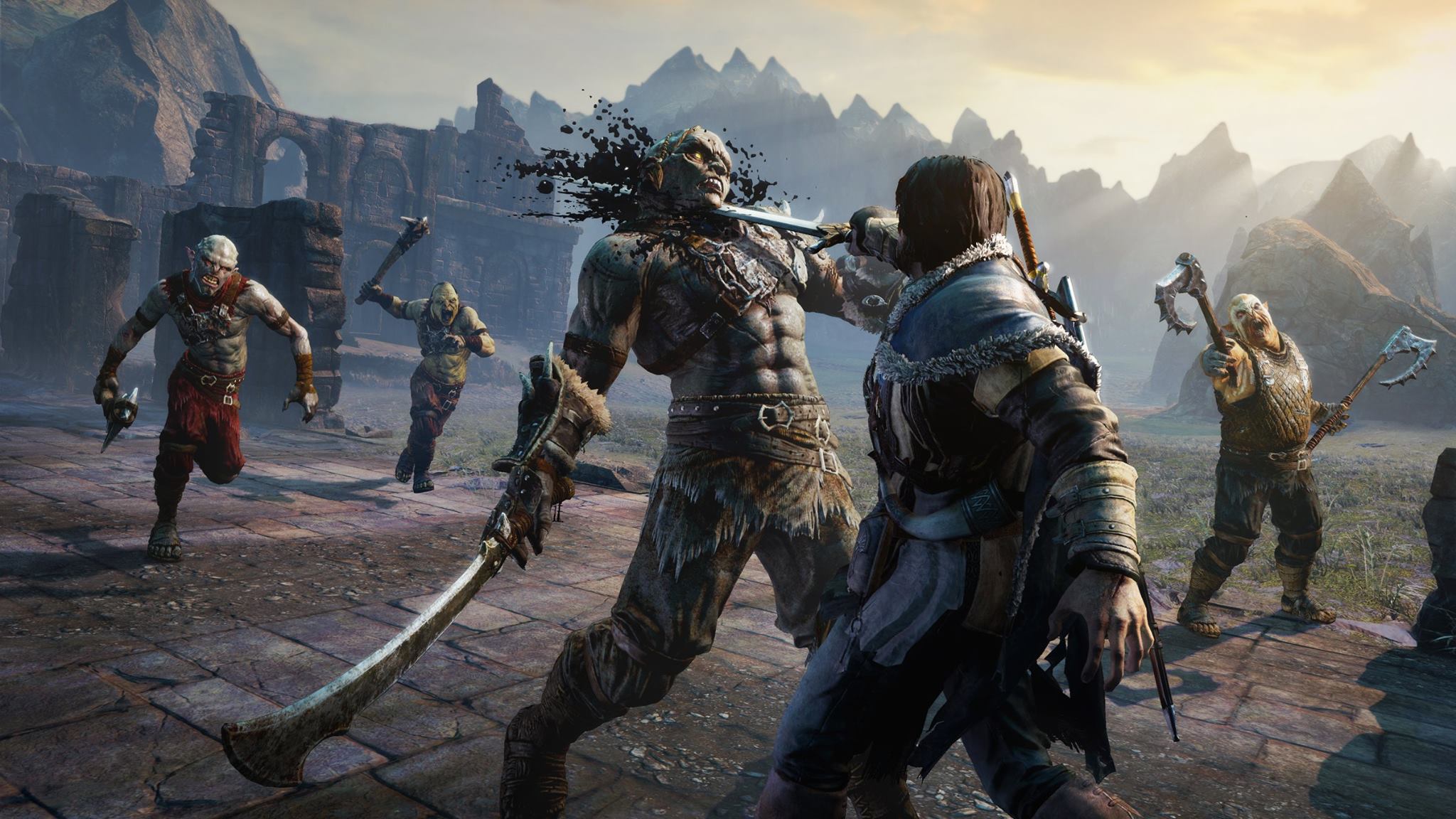
- Developer: Monolith Productions
- Publisher: Warner Bros. Interactive Entertainment
- Genre: Open world action-adventure RPG (third-person perspective)
- Release Date: September 30, 2014
- Platforms: PlayStation 4, PlayStation 3, Xbox One, Xbox 360, Microsoft Windows, Linux, OS X
I know that some of you don’t consider Shadow of Mordor to be an RPG, and you might be right. After all, Skyrim is a deep western RPG that you might play for a few hundred hours, never complete the main story, and still walk away extremely satisfied. Even if Shadow of Mordor is mainly a character-driven, modern action game, it still a lot of technical aspects from complex RPGs.
The game takes place in the Lord of the Rings universe, which by default adds a lot more appeal to this title. But Shadow of Mordor is not just about killing countless of orcs. Although the story is not as immersive when compared to Skyrim, almost all your actions will play a part in what the ending will look like.
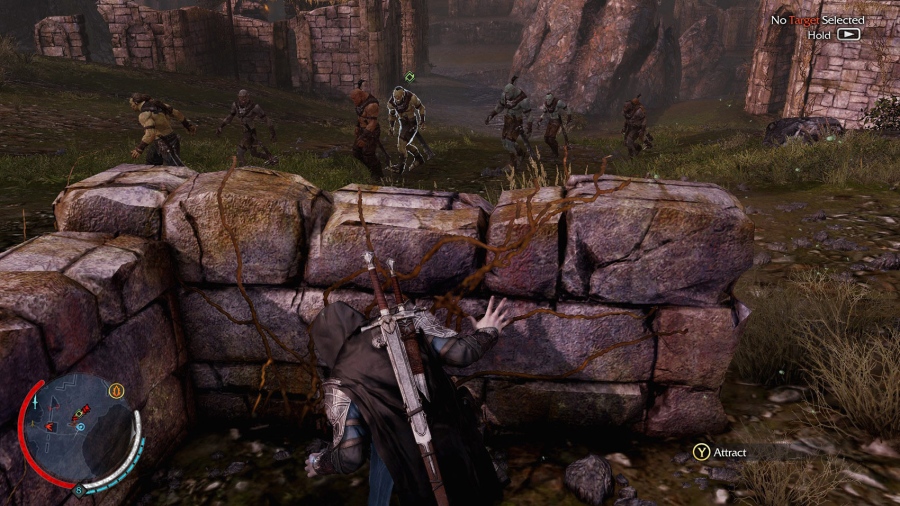
However, the combat system in Shadow of Mordor is much better than in Skyrim. The fighting flows together so nicely, especially in the latest stages of the game when you can simply obliterate your foes with a series of overpowered spells. You could argue that the game is a bit repetitive, and I can understand why. But you have to take into account that the game progression is based on ability unlocks. Anyways, you can expect to enjoy 40+ hours of intense action before you’re done with it.
4. Dragon Age: Inquisition
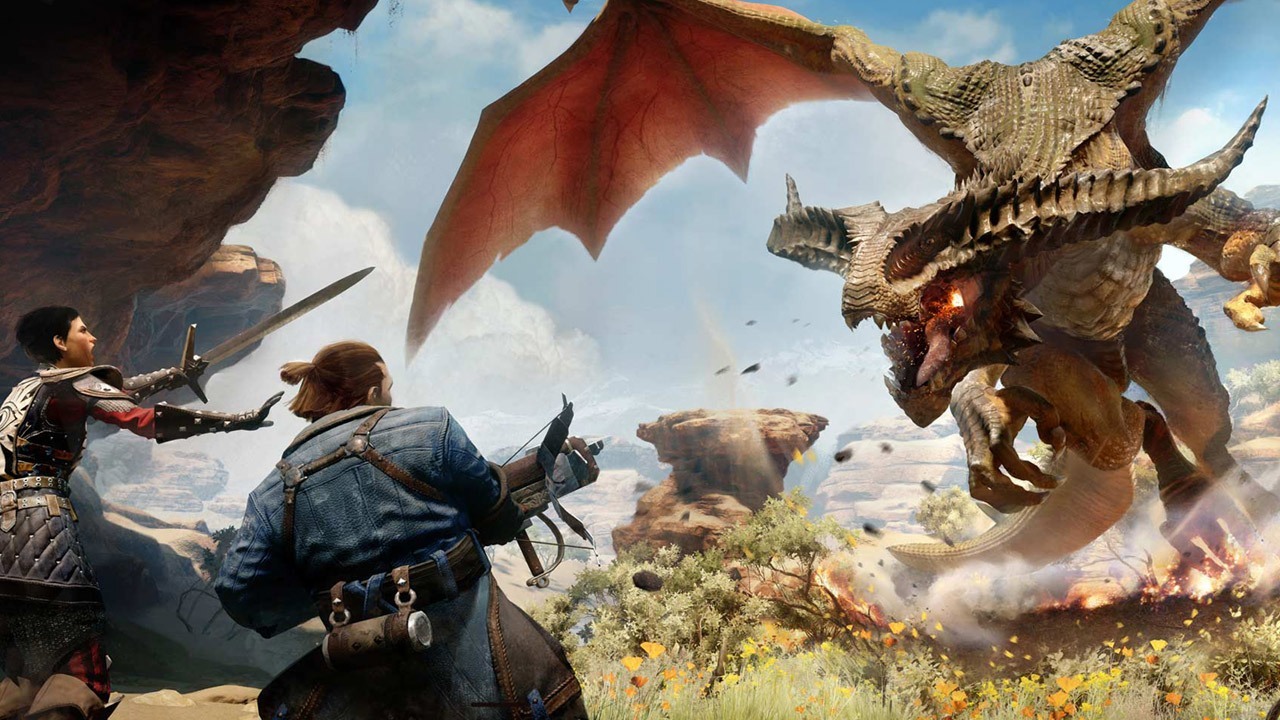
- Developer: BioWare Edmonton
- Publisher: Electronic Arts
- Genre: Action RPG (third-person perspective)
- Release Date: November 18, 2014
- Platforms: PlayStation 4, PlayStation 3, Xbox One, Xbox 360, Microsoft Windows
Dragon Age doesn’t have an open world setting. The game is split up into several different sections that you will come to explore freely. Each region looks stunning and you can expect to see anything from deserts to mountains and swamps.
Aside from the fact that both games are RPGs, you will shortly find out that they are actually very different games. Inquisition has a much stronger sense of interpersonal relationships than Skyrim. The story-driven quests will quickly pull you right in but the combat is a lot slower when compared to Skyrim. You’ll enjoy being the lead inquisitor, but be prepared to do all the grunt work. You’ll end up picking up flowers, rocks and whatever else your lackeys won’t bother finding.
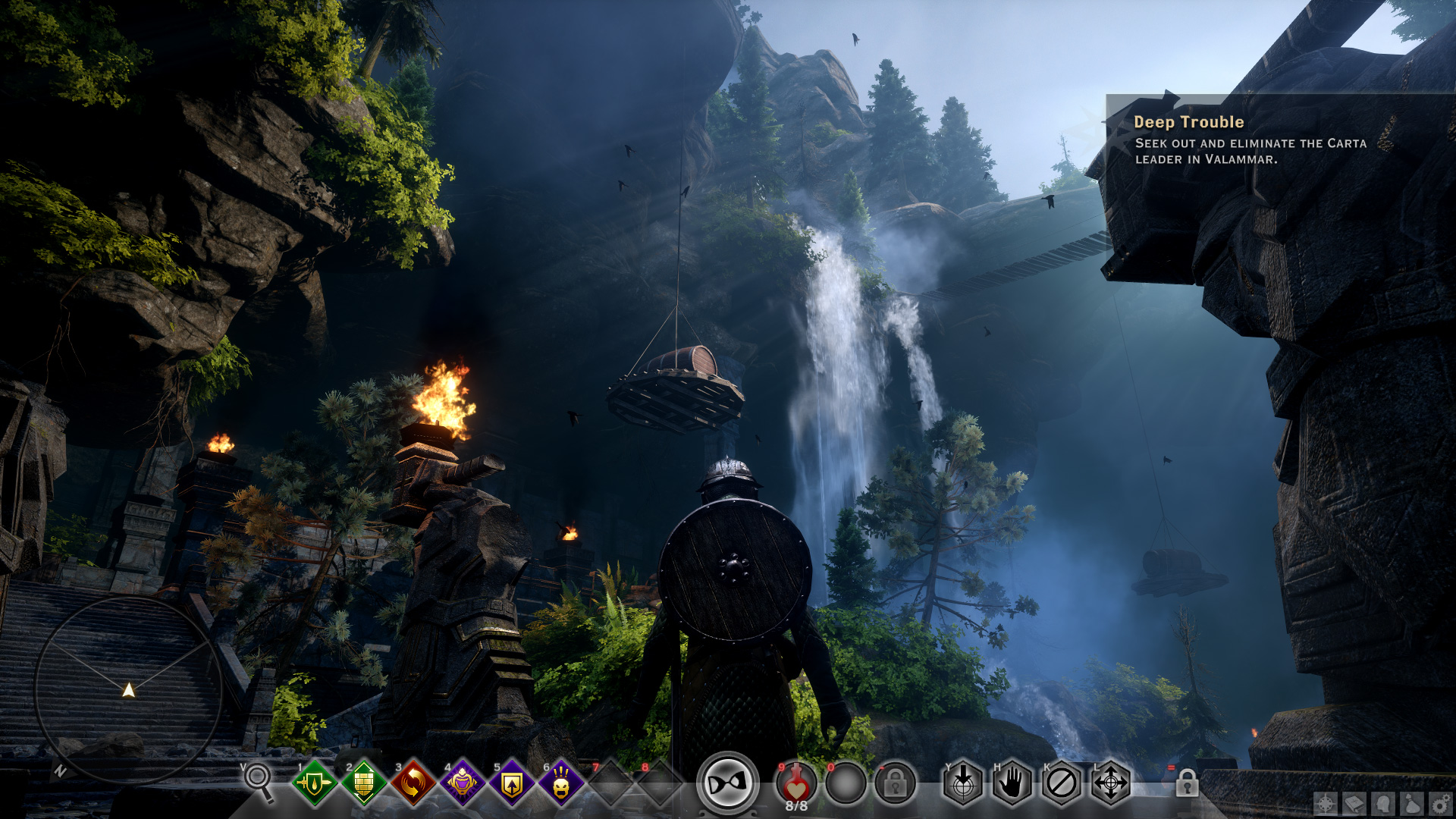
One could argue that the side quests are somewhat tedious and repetitive. If you get bored easily, I advise you to ignore the fetching quests and stick to the fun stuff like hunting dragons. You will level-up enough to complete the game and have a great time while doing it. Oh and if you haven’t played Dragon Age: Origins, I suggest you pick it up.
5. Risen 3: Titan Lords
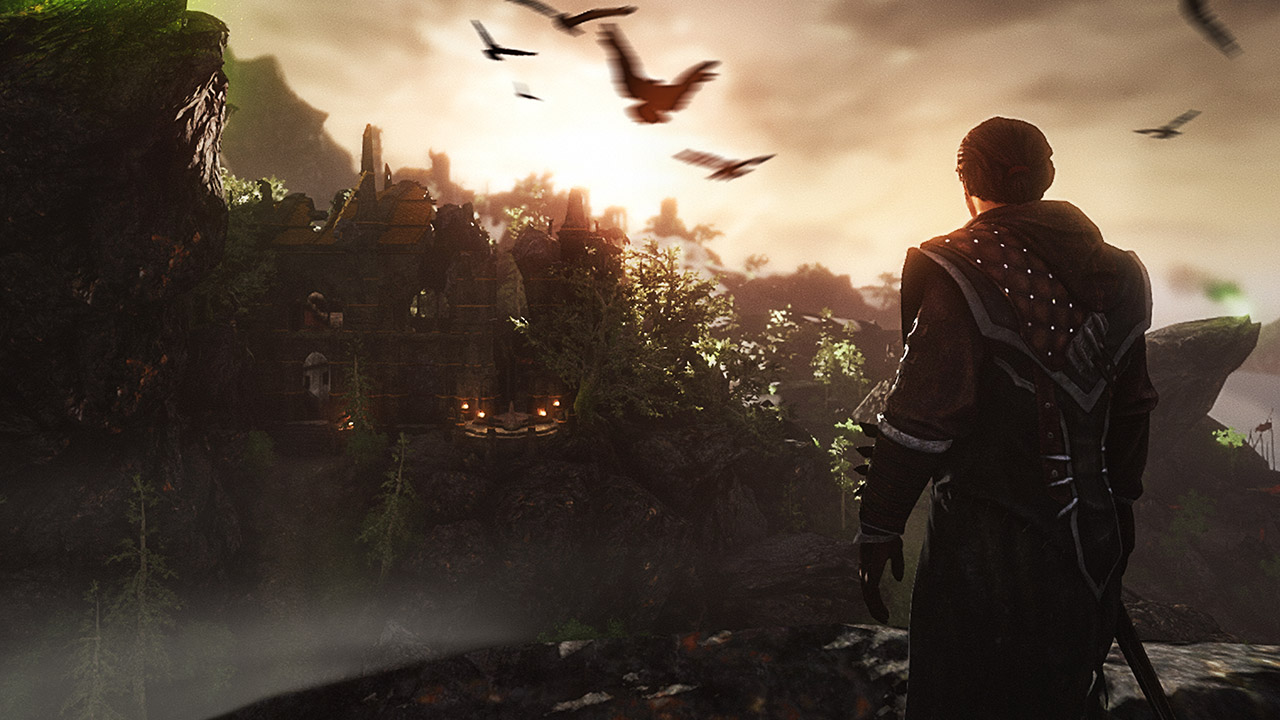
- Developer: Piranha Bytes
- Publisher: Deep Silver
- Genre: Action RPG (third-person perspective)
- Release Date: August 12, 2014
- Platforms: PlayStation 4, PlayStation 3, Xbox 360, Microsoft Windows
Risen 3 is by no means the best-executed RPG you’ll ever play. You can expect to see annoying flaws and glitches that will make you wish to go back into the Elder Scrolls world. But this game has a peculiar sense of grand adventure that will make you ignore the occasional glitch just for the sake of seeing what’s next.
You’ll fill the shoes of an unnamed adventurer, traveling from one island to another and living the life of a well-connected pirate. Similar to Skyrim, you can choose to ally yourself with several different factions that will help you become more powerful. You won’t have a first-person perspective, but you’ll find a lot of familiar mechanic elements.
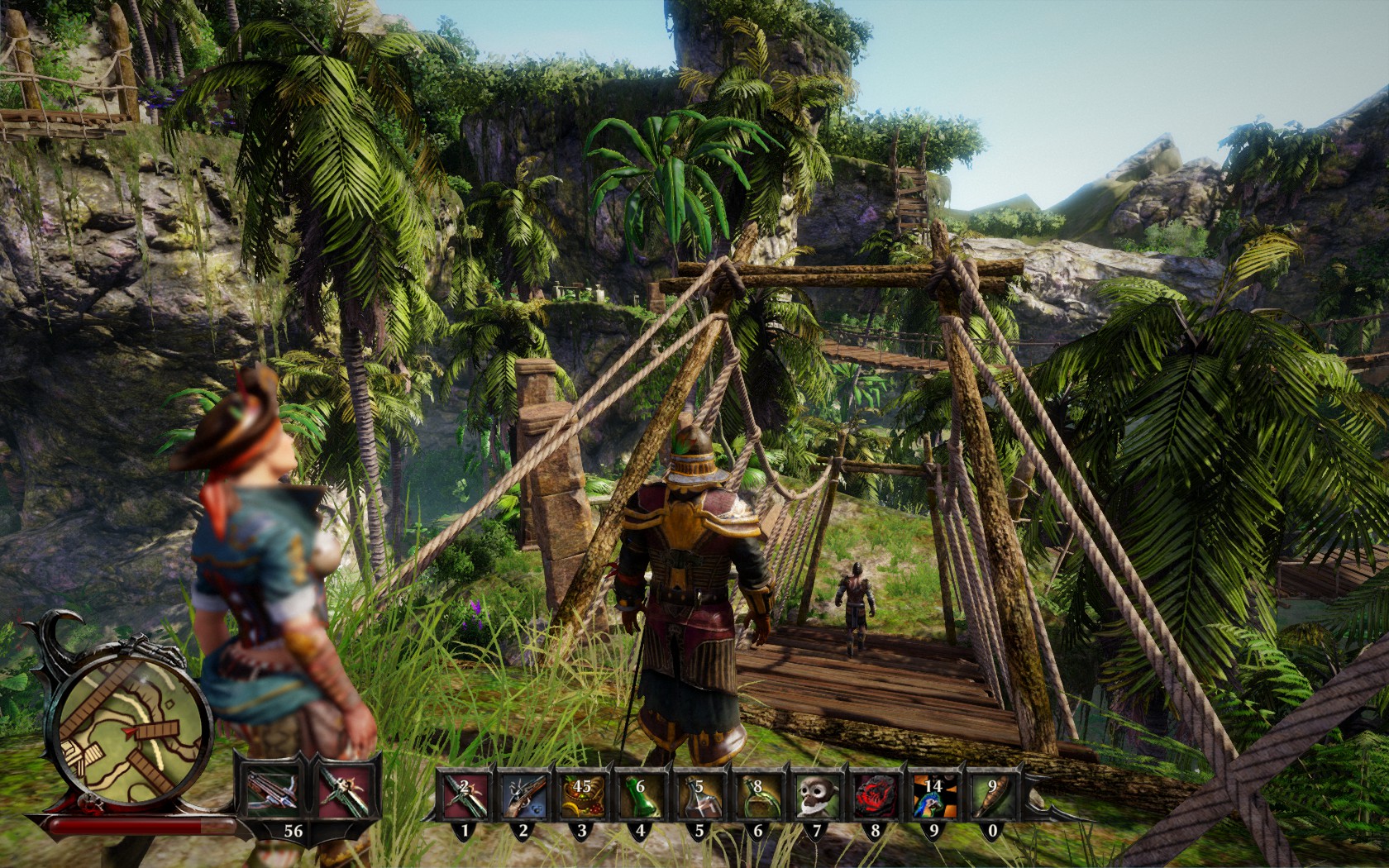
However, if you want a combat system that closely resembles the one in Skyrim, Risen 3 is not the game for you. You won’t need to tinker with complex attack strategies because almost all enemies are easily exploitable. If you’re looking for an exotic RPG experience or you’re a big fan of pirates, give Risen 3 a chance. But I advise you to stay away from the older Risen titles unless you’re looking for a plethora of bugs & glitches.
6. Dragon’s Dogma: Dark Arisen
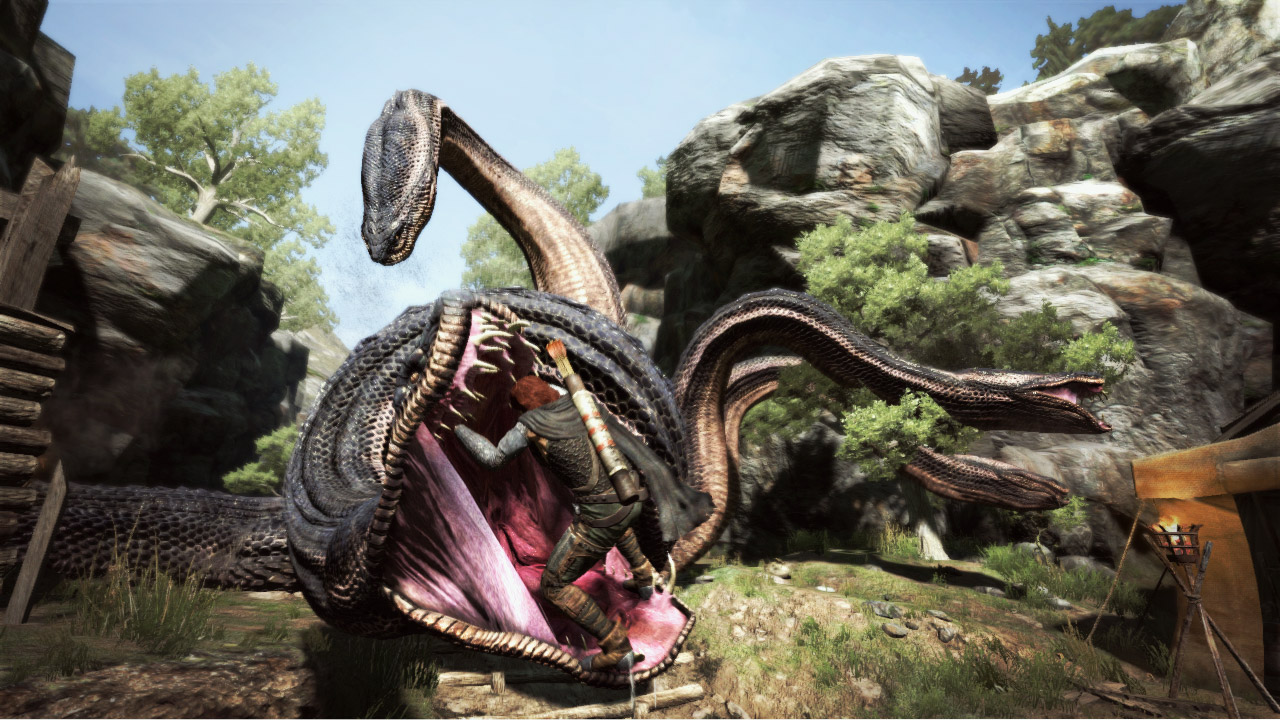
- Developer: Capcom
- Publisher: Capcom
- Genre: Open world action RPG (third-person perspective)
- Release Date: April 23, 2013
- Platforms: PlayStation 4, PlayStation 3, Xbox One, Xbox 360, Microsoft Windows
Dragon’s Dogma: Dark Arisen is a re-release to the already excellent Dragon’s Dogma. The newest version includes substantial new content – the primary addition is an entirely new area called Bitterblack Isle.
The creatures that you get to fight in this game have something special when compared with the ones in Skyrim. Skyrim’s dragons all look roughly the same, but in Dragon’s Dogma, every boss looks entirely different. Unfortunately, the fighting is not that good because every beast tends to hold their ground, making them easy to be exploited.
However, Dragon’s Dogma borrows a lot of cruelty from the DarkSouls series. The game might make you run around for 20 minutes only to get killed instantly and returned at the start of the map again. Overall, Dragon’s Dogma is more difficult than Skyrim, mainly because the game is not designed to hold your hand throughout the entire journey.
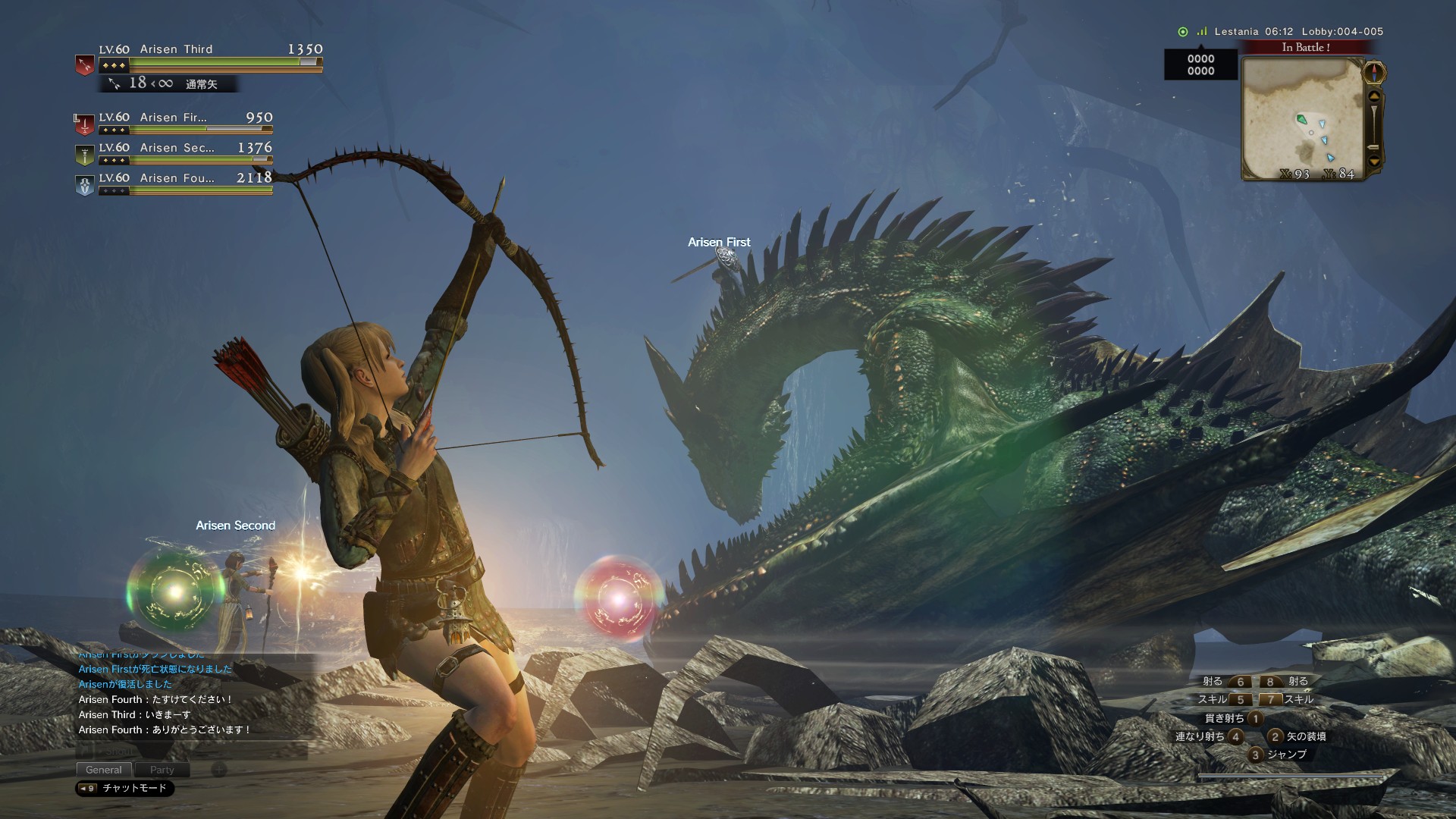
Since western and Japanese RPGs are so different from the get-go, you can’t properly compare the two titles. But if you’re looking for a demanding RPG experience, you should definitely play Dragon’s Dogma: Dark Arisen.
7. Kingdoms of Amalur: Reckoning
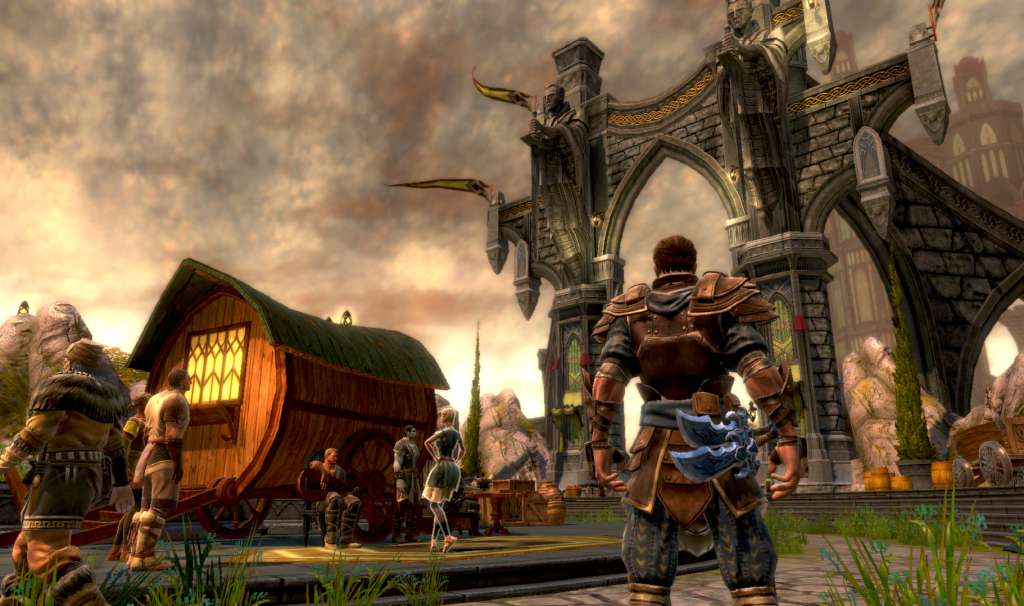
- Developer: 38 Studios, Big Huge Games
- Publisher: 38 Studios, Electronic Arts
- Genre: Open world action RPG (third-person perspective)
- Release Date: February 7, 2012
- Platforms: Microsoft Windows, PlayStation 3, Xbox 360
This is a game you probably didn’t play. Unfortunately, Kingdoms of Amalur didn’t get the popularity it deserved. As a matter of fact, I remember discovering this game after reading that the game studio behind it has filed for bankruptcy. I feel bad that 38 Studios never got to make a sequel to Kingdoms of Amalur.
Turns out that this game is a vast, elaborate RPG with an intriguing story and a whole lot of sidequests. The fighting is nothing similar to Skyrim, but you’ll discover a well executed in-depth combat that will urge you to keep playing. The story will suck you right in, and the level-up mechanics will encourage you to get away from the main plot and explore the world.
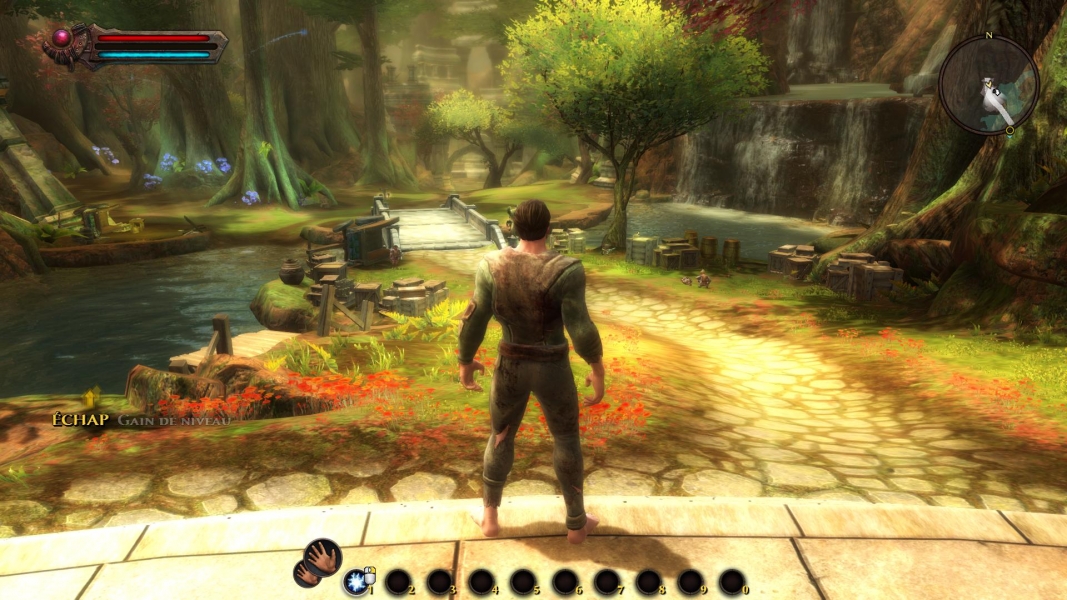
But as impressive as Amalur is, you’ll encounter much more bugs & glitches than in Skyrim. It’s a shame that the game creators are no longer here to fix it. Kindom of Amalur is an incredibly robust game that gives you an astonishing amount of freedom. If you haven’t played it yet (and chances are you haven’t), you should definitely pick it up.
8. Gothic 3
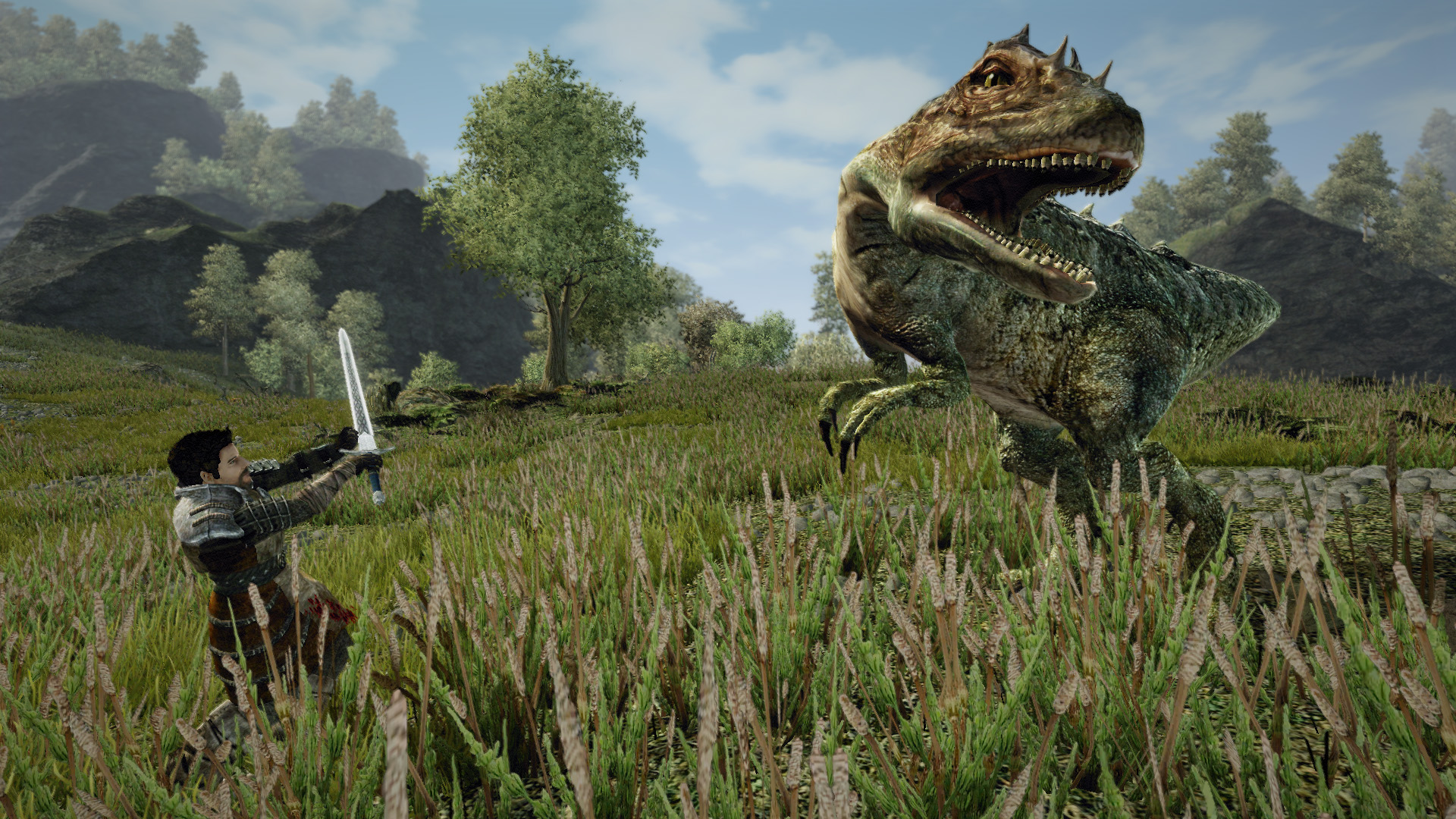
- Developer: Piranha Bytes
- Publisher: JoWooD Productions, Deep Silver, Aspyr Media
- Genre: Open world action RPG (third-person perspective)
- Release Date: October 13, 2006
- Platforms: Microsoft Windows
If you’re an old RPG fan like me, you already know that the Gothic series has a unique take on building an open world RPG. To put it in simple mild terms, Gothic is an insanely difficult version of Skyrim. The game is quite old, so if you aren’t bothered by outdated graphics, you’ll come to love the characters and quests that Gothic 3 has to offer.
If you decide to play Gothic 3, I urge you to download the last version of the community patch. The first version where so buggy that nearly made the game unplayable. When compared with Skyrim, there’s a lot less handholding in Gothic 3. You won’t see your quests givers in the compass and the HUD won’t show how many steps you need to take until you reach your destination. It’ll be just you, a map, and an ambiguous description.
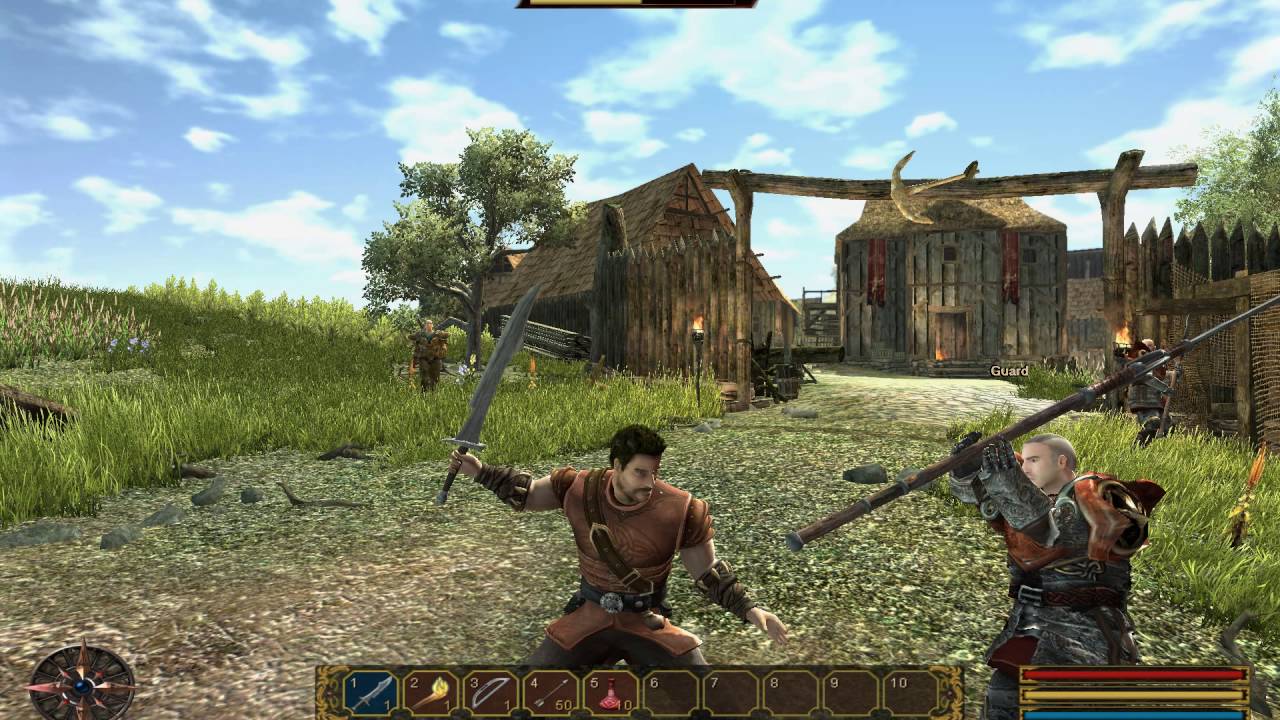
If you’re feeling nostalgic about how old RPG’s were made, Ghotic 3 will show you the old ways.
9. Bloodborne
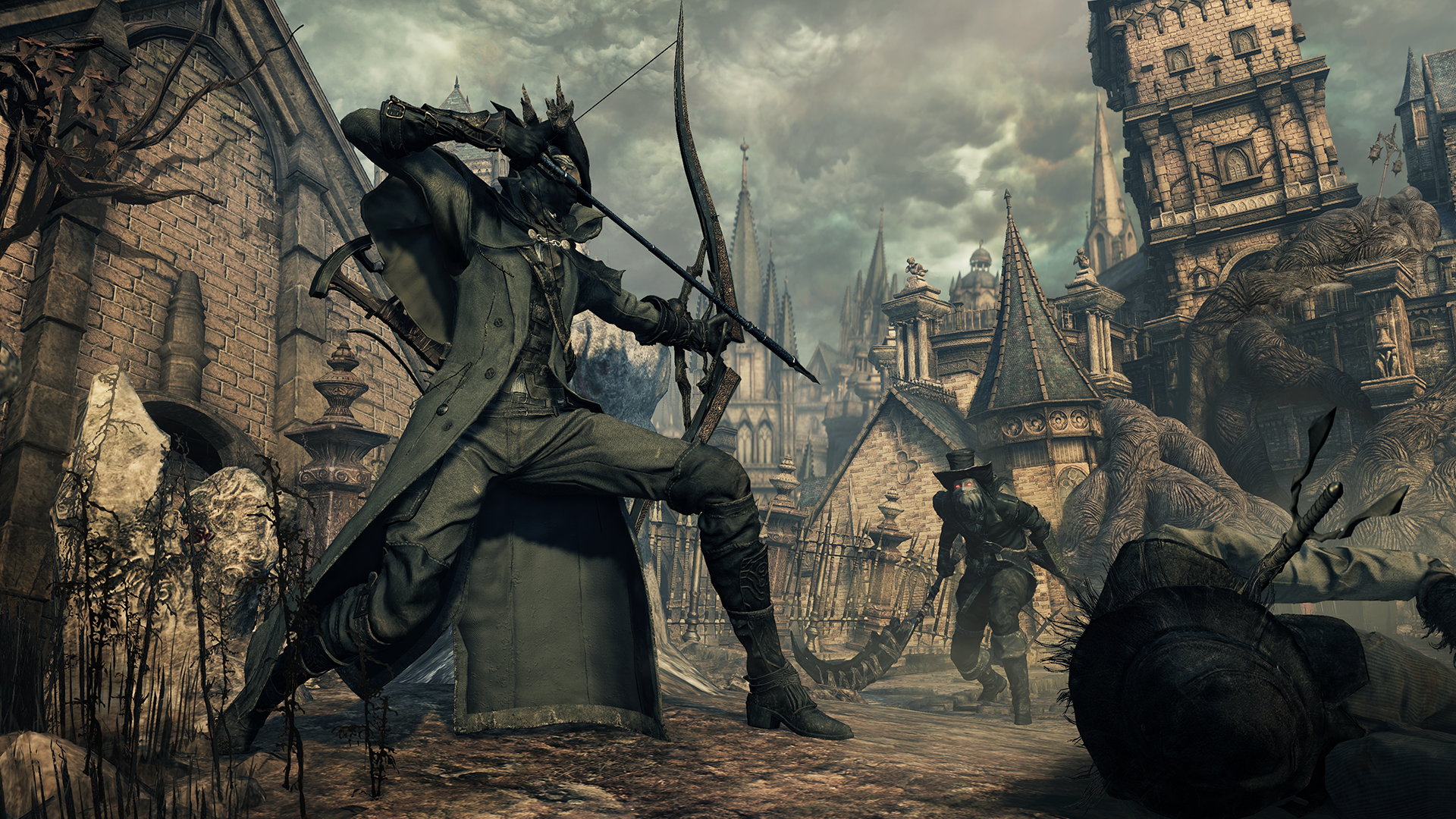
- Developer: FromSoftware
- Publisher: Sony Computer Entertainment
- Genre: Action RPG (third-person perspective)
- Release Date: March 24, 2015
- Platform: PlayStation 4
Bloodborne is made by the same guys responsible for the Dark Souls series, so if you’re looking for a casual RPG, look away from Bloodborne. This game is unforgiving but extremely rewarding.
You will seek answers in Yharnam, a city curest by a strange epidemic spreading through the streets. You can arm yourself with everything from guns to cleavers, but your wits will be the most powerful weapon.
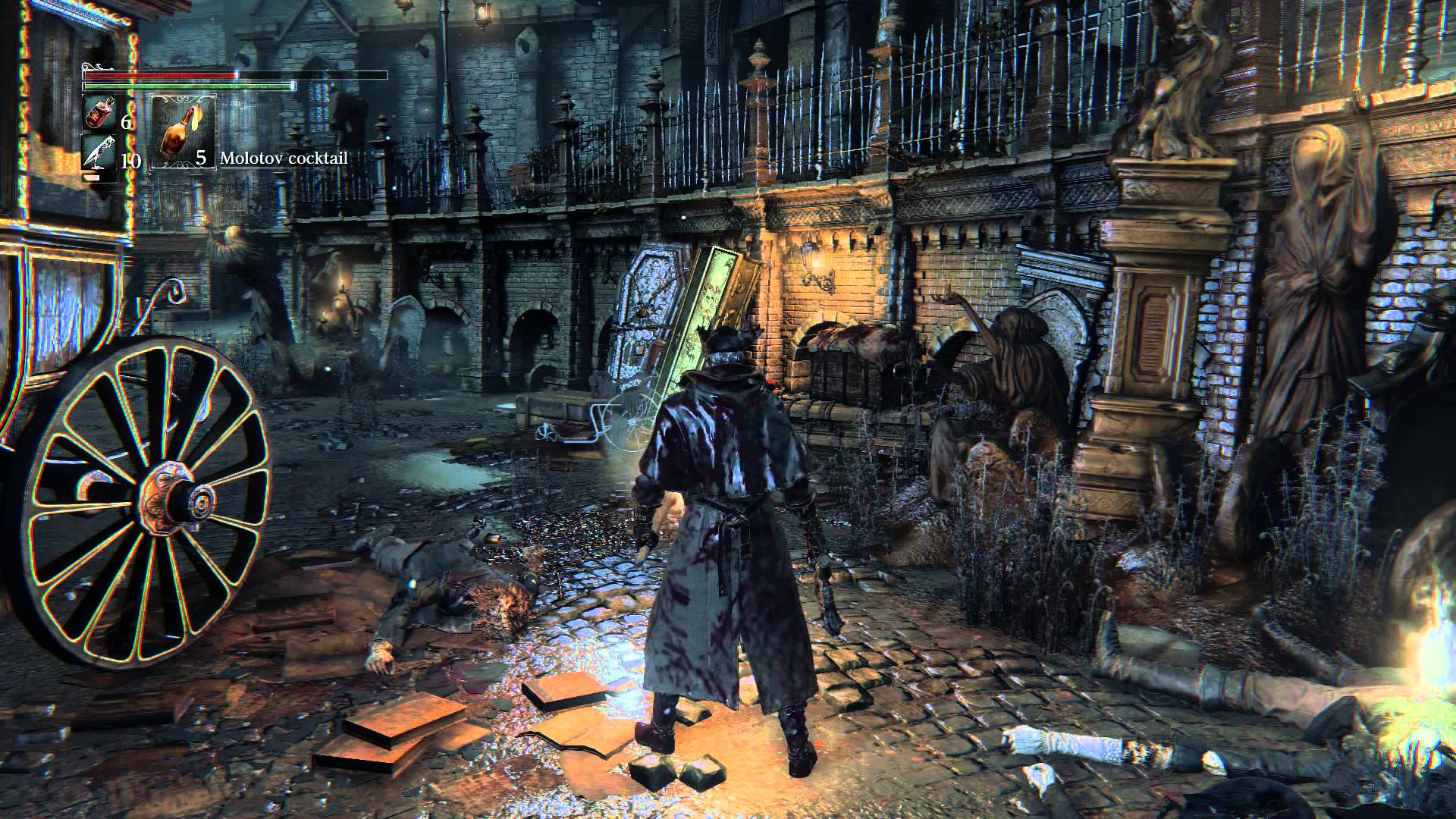
In Bloodborne, there are no quest locations on the minimap, so don’t expect the slightest amount of handholding. You will be completely on your own, and you will die a lot. Bloodborne is very rewarding to play, but your patience will be heavily tested.
10. Fable III
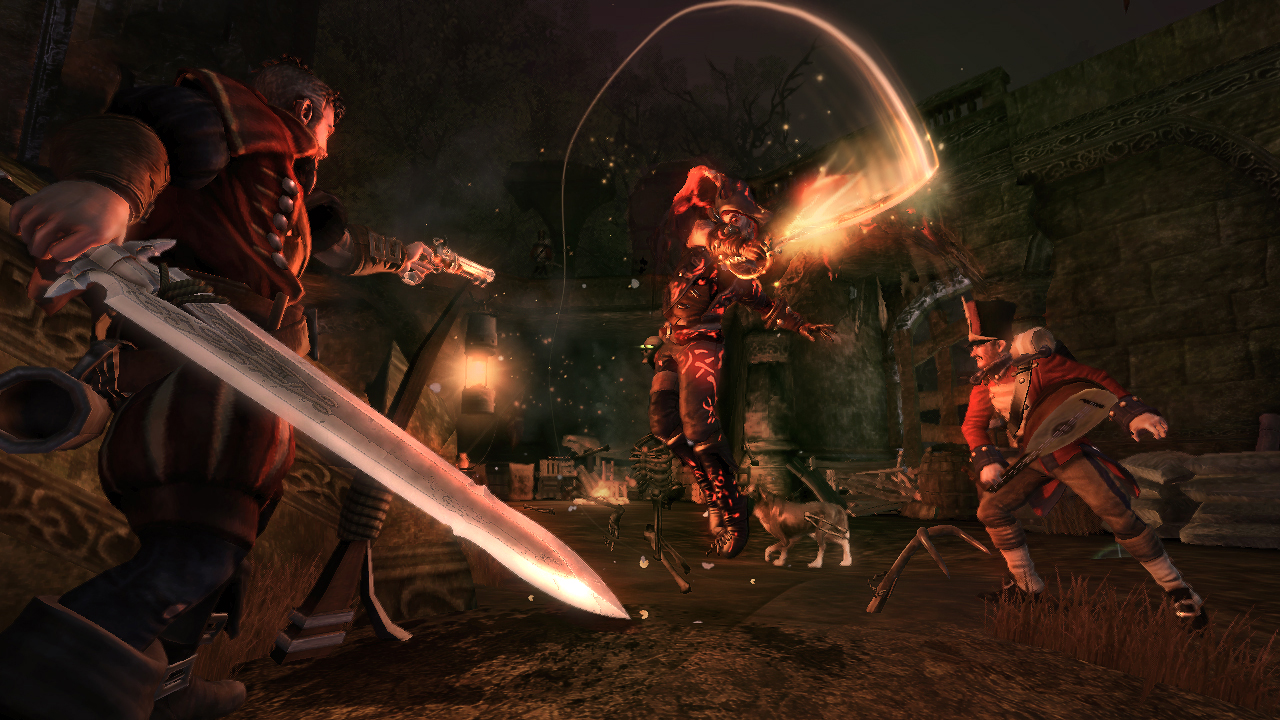
- Developer: Lionhead Studios
- Publisher: Microsoft Games Studios
- Genre: Open world action RPG (third-person perspective)
- Release Date: October 26, 2010
- Platform: Microsoft Windows, Xbox 360
Fable III will dare you to overthrow tyrant King of Albion by forming alliances and building support for a revolution. I personally love the Fable series and I happen to think that Pete Molyneux, the game designer behind it, is one of the best in the industry.
If we were to compare it with Skyrim, Fable III seems a much more casual RPG at first. Even if you’re an RPG newcomer, you won’t have any problems figuring out what you have to do. The character creation is really smooth and the storytelling will blow your mind.
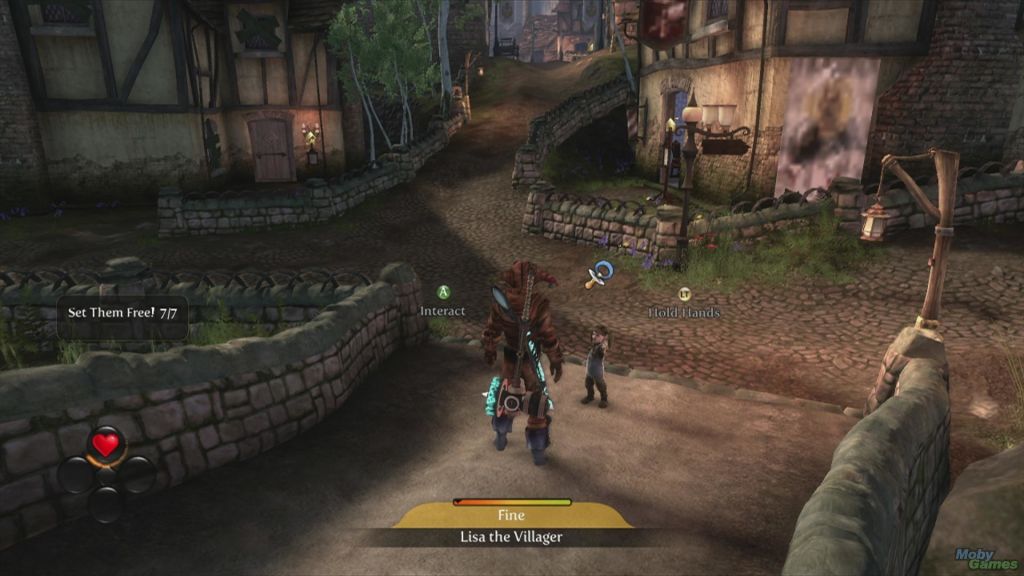
Some elements are truly unique and can only be found in the Fable series. But I’ll let you discover them for yourself.
11. The Elder Scrolls IV: Oblivion
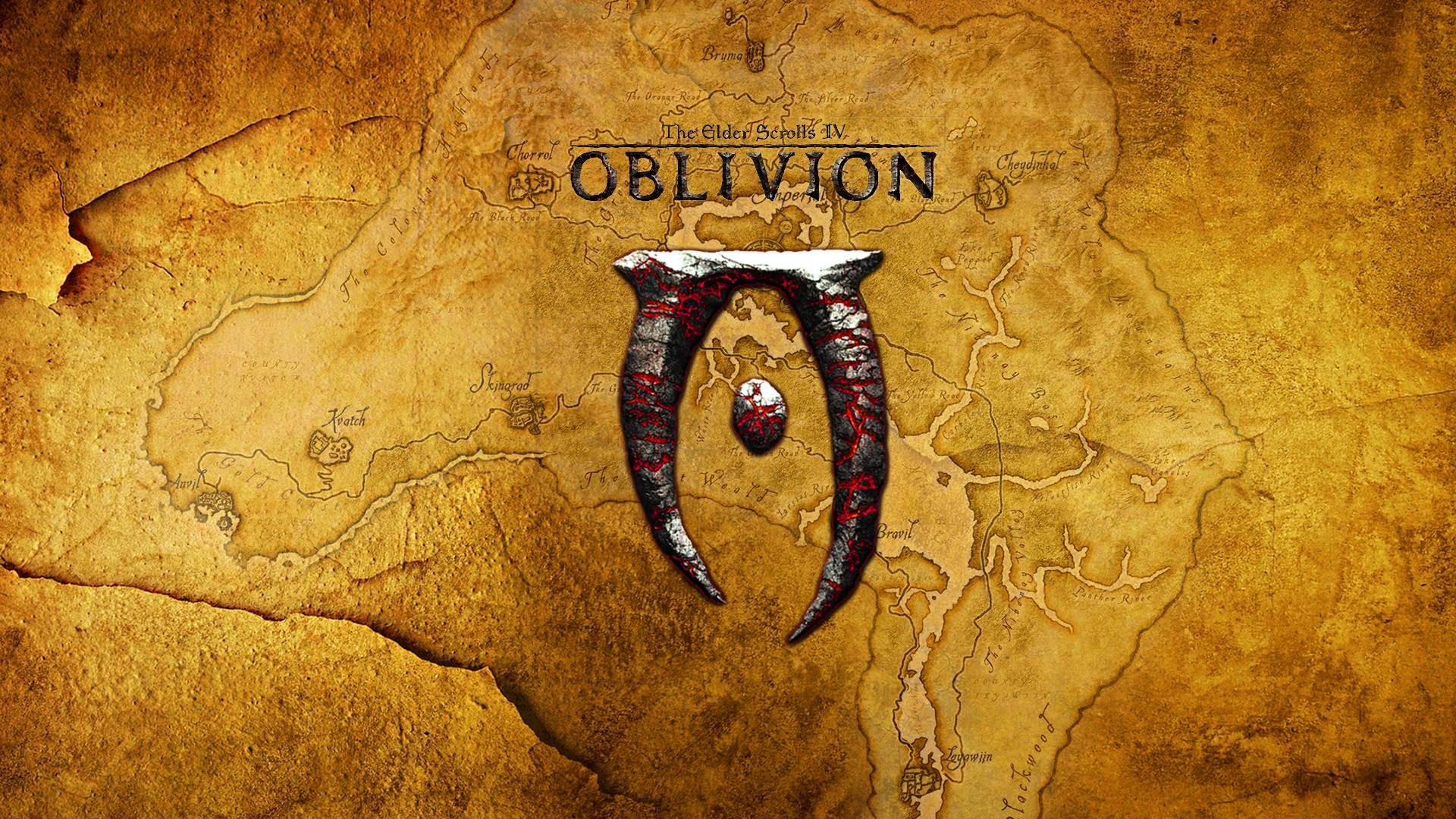
- Developer: Bethesda Game Studios
- Publisher: Bethesda Softworks
- Genre: Open world action RPG (third & first-person perspective)
- Release Date: March 20, 2006
- Platforms: PlayStation 3, Xbox 360, Microsoft Windows
Sure, Skyrim has many graphics and mechanical improvements, but many TES fans believe that Oblivion does it better in terms of roleplaying. A lot of gameplay elements was inherited by Skyrim from Oblivion.
Even if it’s over a decade old, Oblivion still has an active modding community behind it. If you decide to play this game, you’ll immediately understand how Skyrim got to be this good. Of course, you need to get past the outdated graphics. But if you stick around long enough for the story to draw you in, that shouldn’t be a problem.
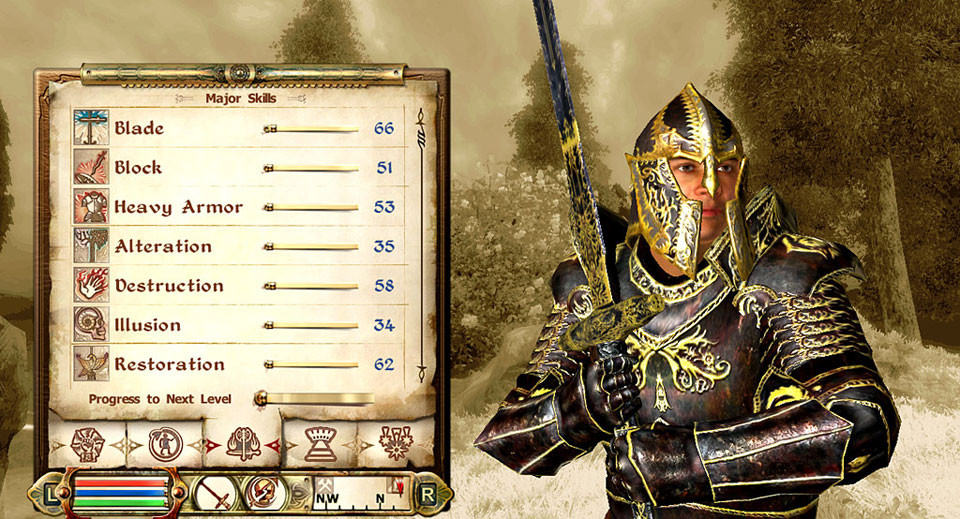
Oh and don’t forget that Oblivion got made during the golden days of RPGs, an era in which season passes didn’t exist. Expect over 200 hours of gameplay from the base version of Oblivion. The depth of this game will blow your mind. If you decide to mod it, you can add another few hundreds more gameplay hours.
12. The Elder Scrolls Online
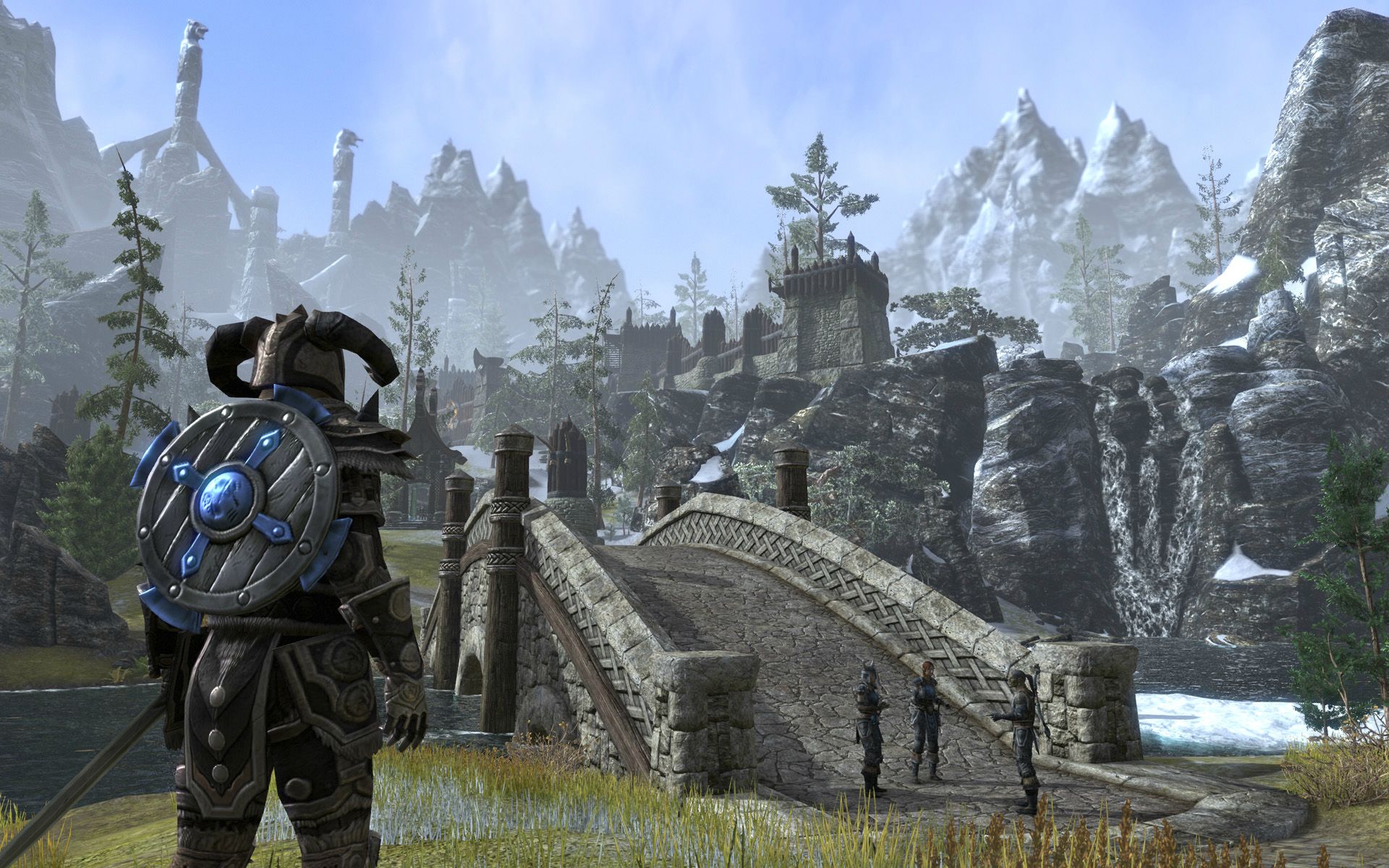
- Developer: ZeniMax Online Studios
- Publisher: Bethesda Softworks
- Genre: Massively multiplayer online RPG (third & first-person perspective)
- Release Date: April 4, 2014
- Platforms: PlayStation 4, Xbox One, Microsoft Windows, OS X
A lot of gamers refer to Elder Scrolls Online as Skyrim Online, but I feel this title is a little misleading. The two games work on similar principles with a lot of identical game mechanics.
This is the first multiplayer games of the TES series. You will be the Dragonborn and you’ll be able to absorb souls in order to become more powerful. Sounds familiar? The events in Elder Scrolls Online take place 1000 years earlier than the ones in Skyrim. Think of ESO as a never-ending prequel to Skyrim.
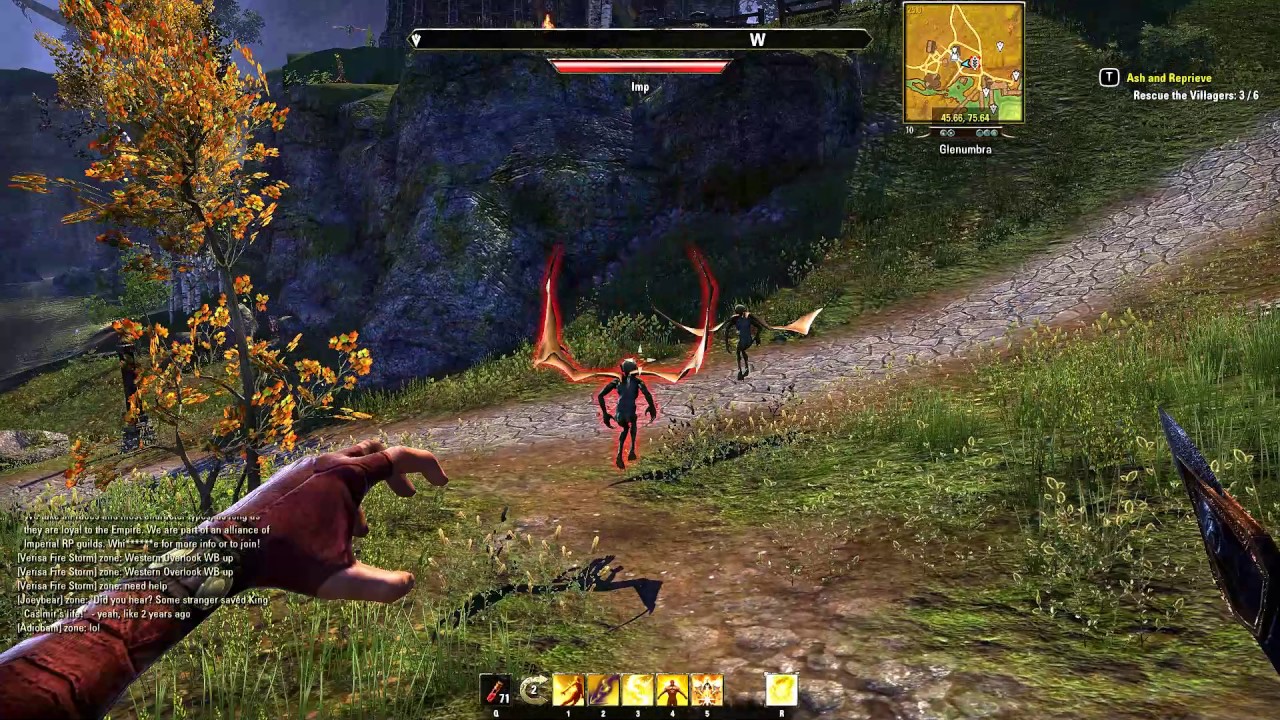
If you can’t get enough of the Elder Scrolls world, jumping into this MMORPG right after finishing Skyrim makes a lot of sense.
13. Morrowind
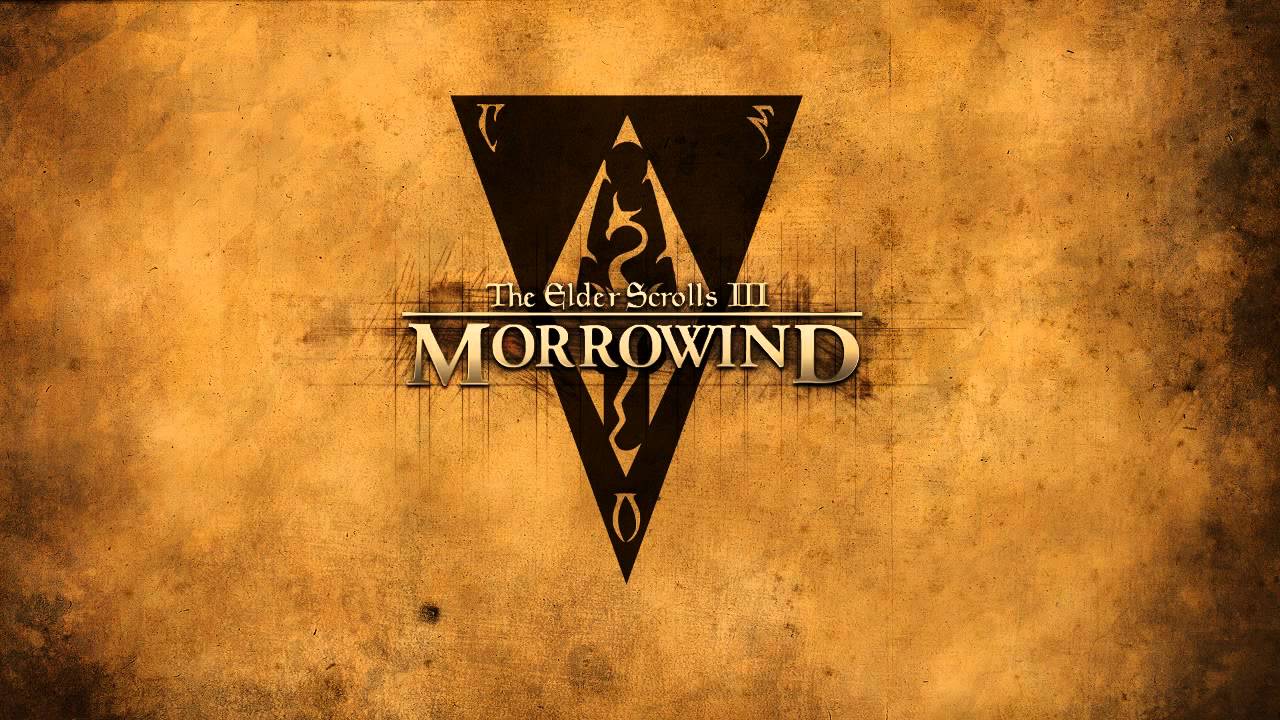
- Developer: Bethesda Game Studios
- Publisher: Bethesda Softworks
- Genre: Open world action RPG (third & first-person perspective)
- Release Date: May 1, 2002
- Platforms: Microsoft Windows, Xbox
If you just won’t leave the TES universe alone, you might as well go all the way back to Morrowind. This game changed the way RPGs are made. It was one of the first RPGs with a free-form style of gameplay.
In that era, RPGs were highly focused on the main plot with very little else to do. After Morrowind came out and won a bunch of awards including GOTY, most RPG developers started focusing more alternative plots with various sidequests for their games.
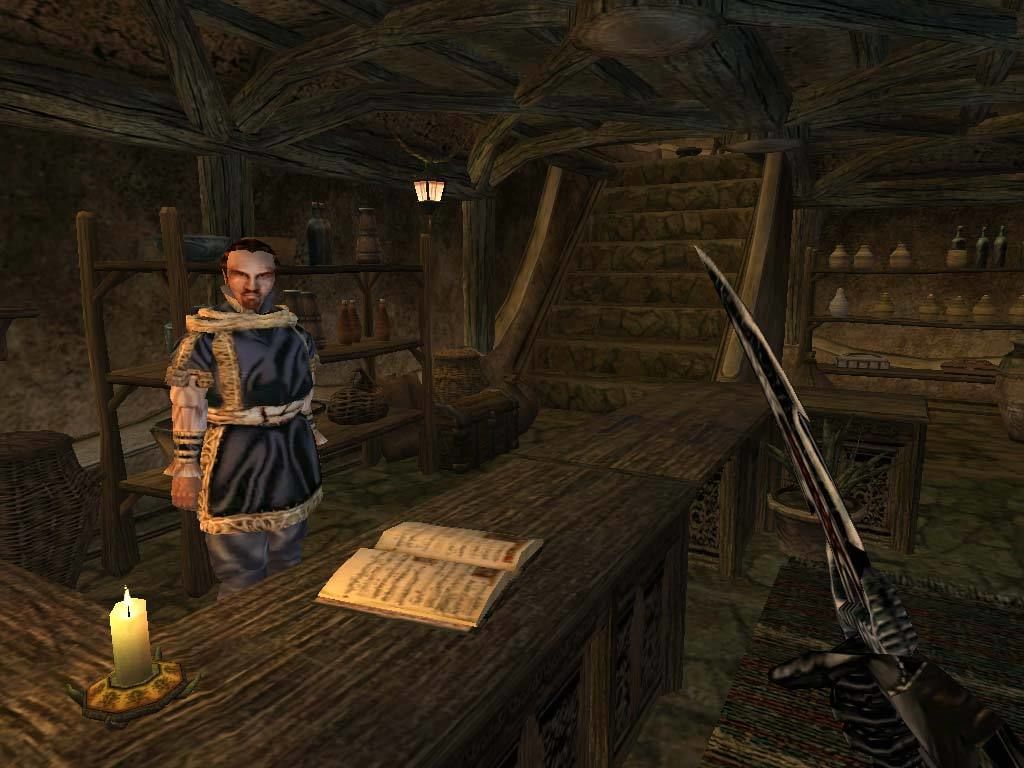
If you didn’t play Morrowind before and you are able to get past the old graphics, you can give it a try. Just make sure you are able to pour at least 100 hours of gameplay into it.
14. Divinity: Original Sin II
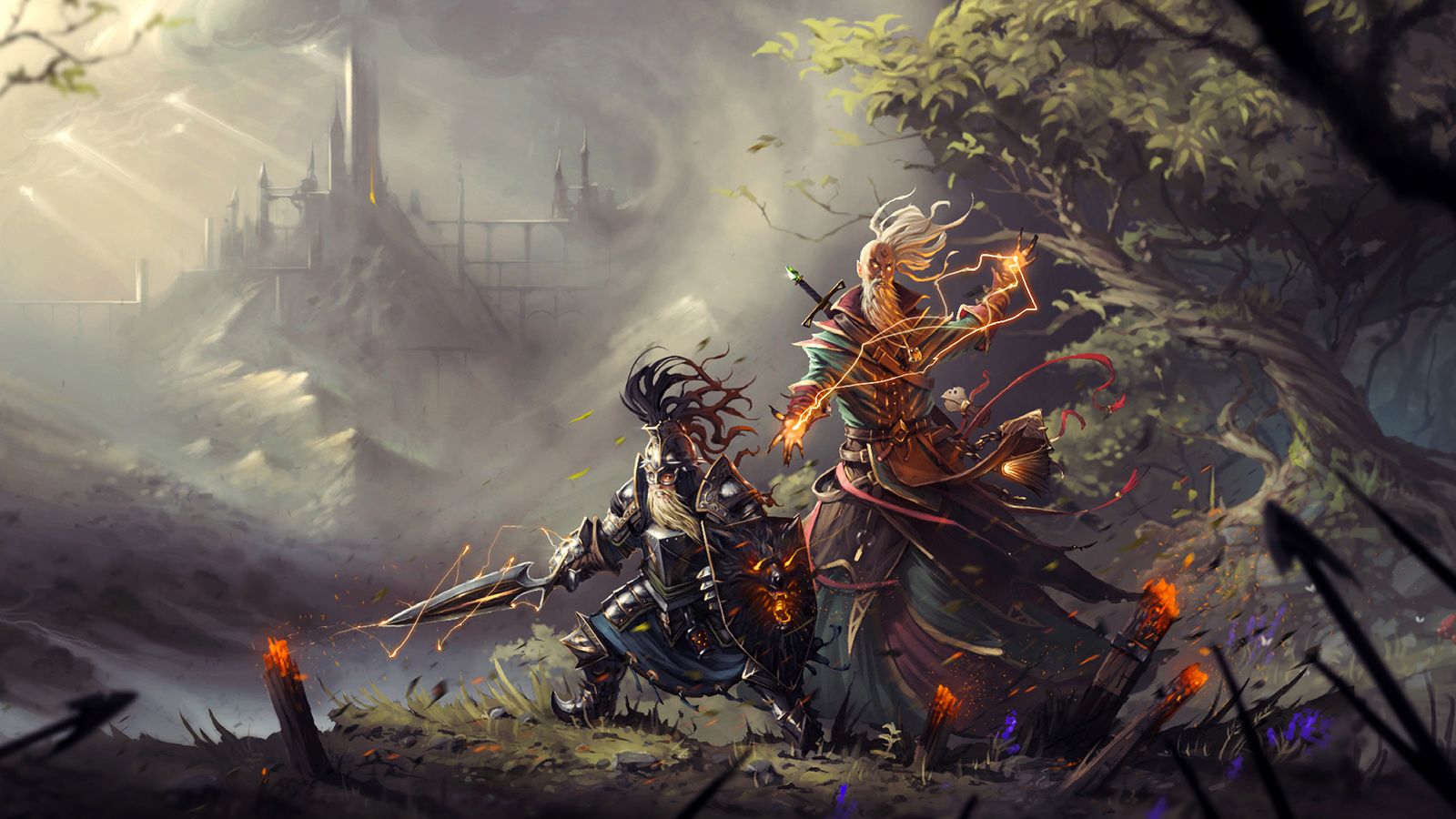
- Developer: Larian Studios
- Publisher: Larian Studios
- Genre: RPG (third-person perspective)
- Release Date: 14 September 2017
- Platforms: Microsoft Windows
The Divinity series has all the core elements for a solid RPG. Similar to Skyrim, you will be able to choose your character’s stats, race and origin story. Throughout the game, you can take up to three companions with you that will help you overcome your foes.
I haven’t got the chance to play the game yet, but I love the fact that you can manipulate the environment to your advantage. You also have a cover system that can save your life when you’re fighting a tough opponent.
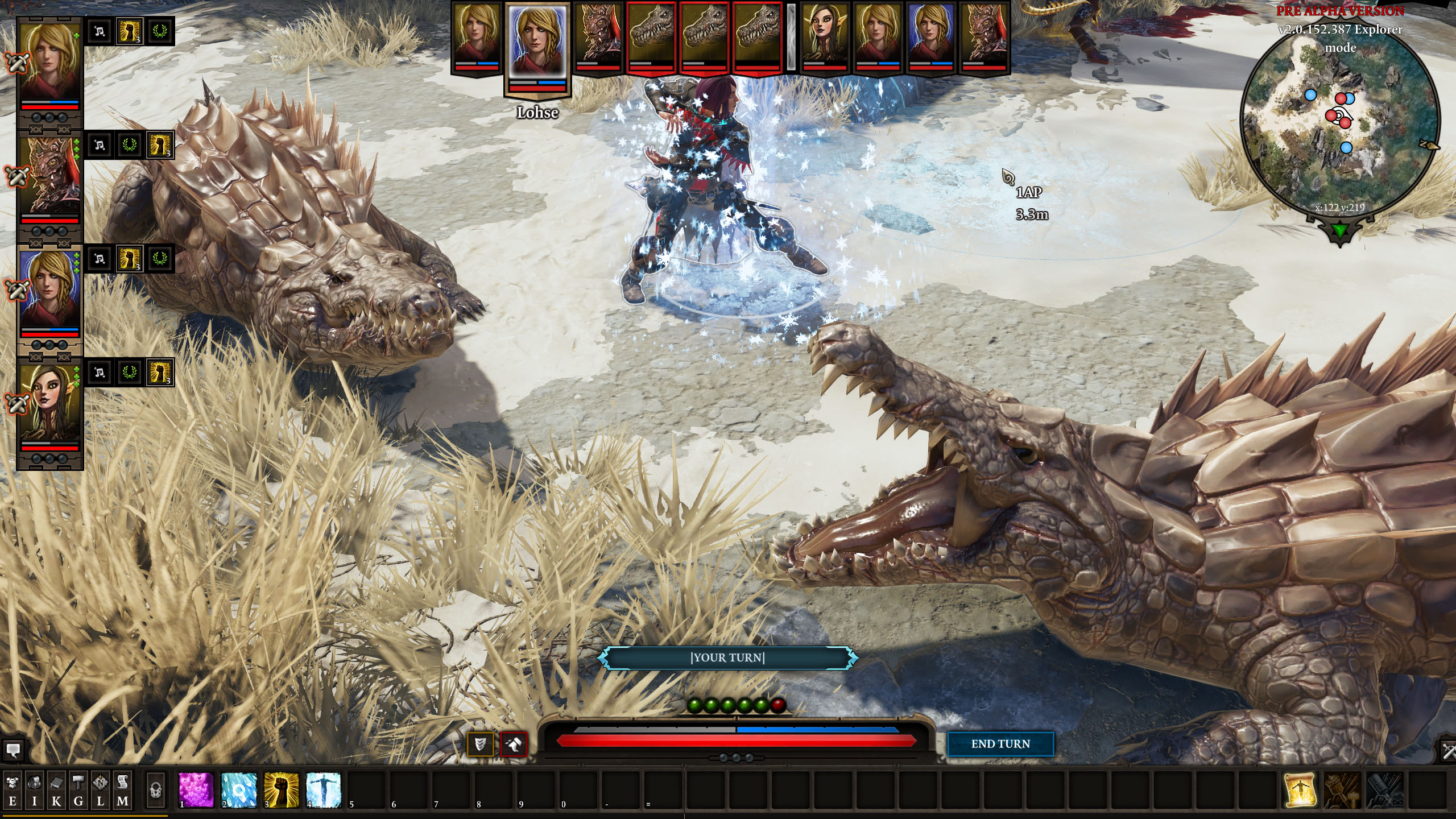
Divinity: Original Sin II also has a multiplayer component. If you decide to try it, you and other players are split into different teams and pitted against each other in an arena map.
15. Prey
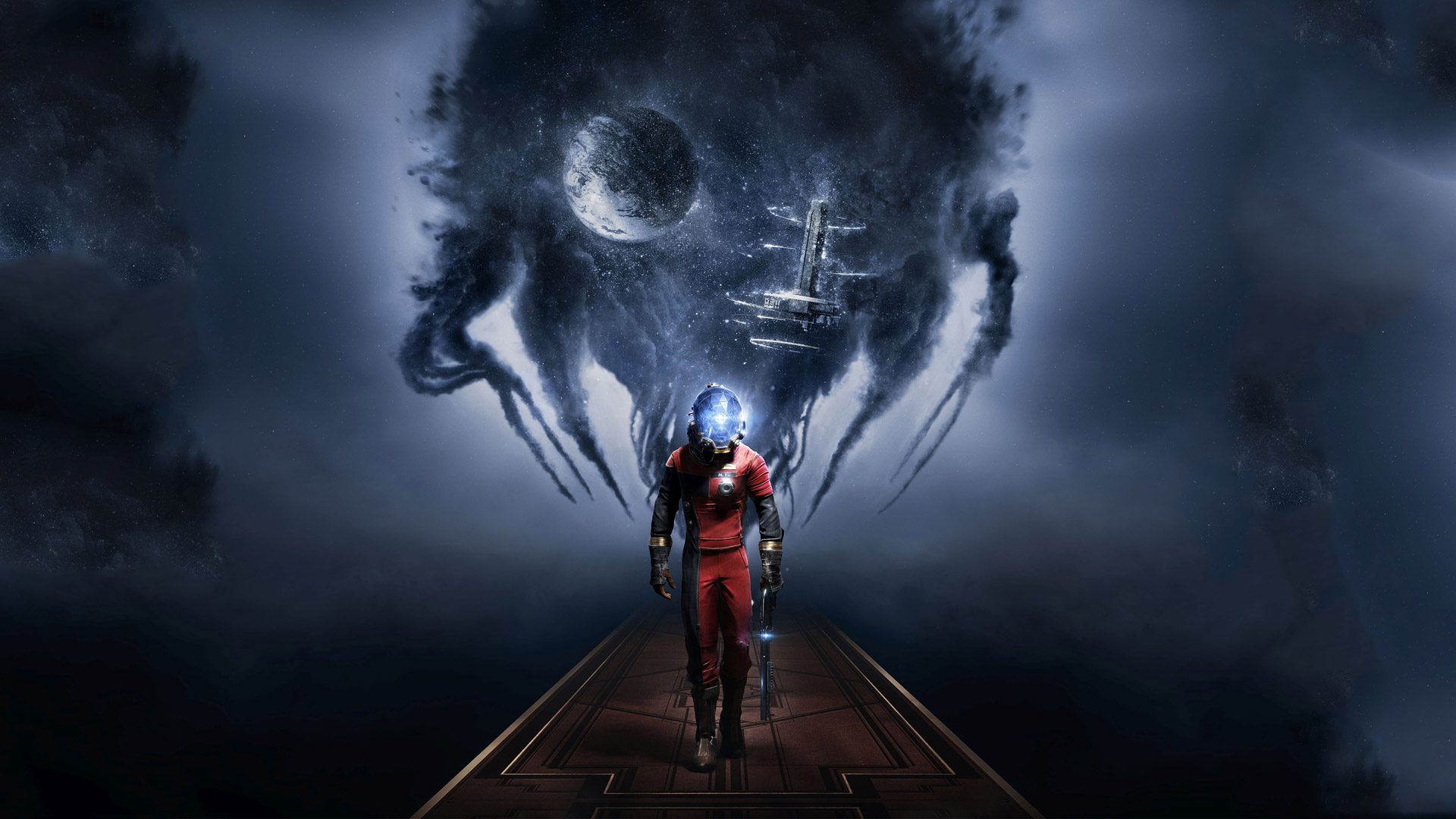
- Developer: Arkane Studios
- Publisher: Bethesda Softworks
- Genre: First-person shooter with RPG elements (first-person perspective)
- Release Date: May 5, 2017
- Platforms: Microsoft Windows, PlayStation 4, Xbox One
I’ve saved up this one for last because Prey is, in fact, a shooter. The reason I decided to feature this game is that it has a lot of RPG elements and is published by the company behind Skyrim. You will control Morgan You and explore Talos I, a space research station that orbits around the moon. You will gain access to various areas by acquiring key items and abilities. Those will eventually allow you to explore the station freely in an open world setting.
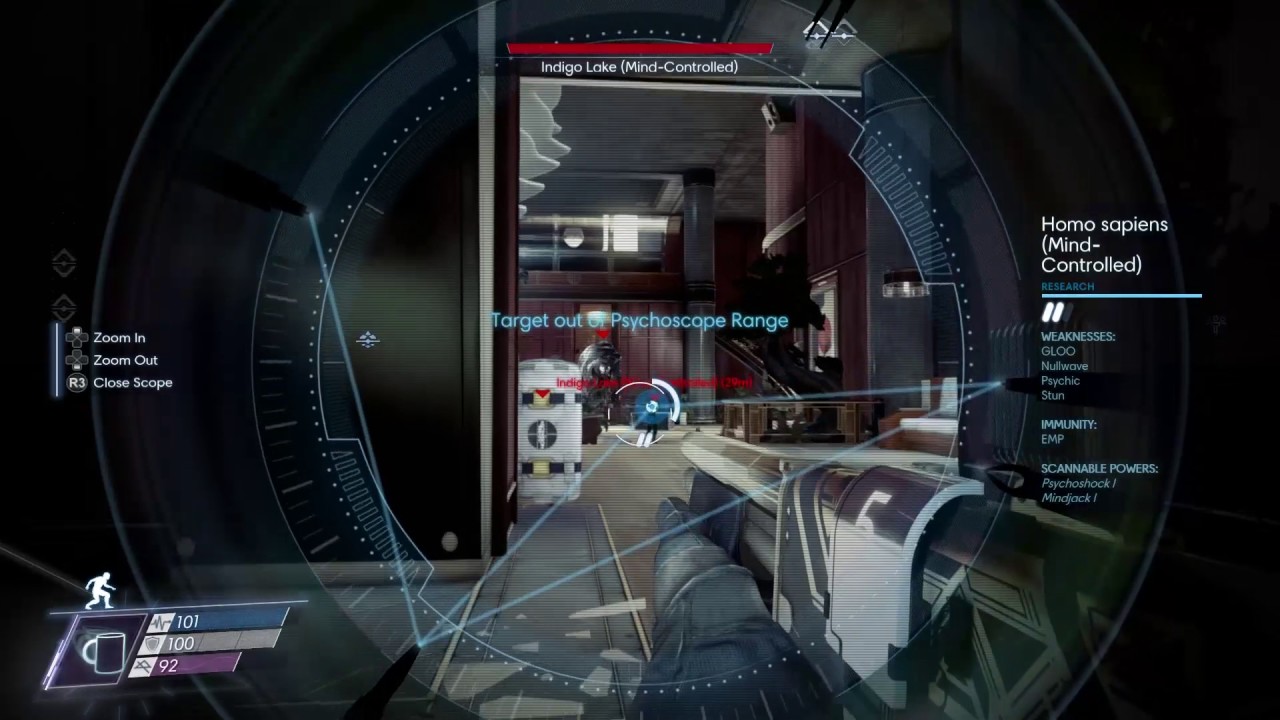
Prey is a spiritual sequel to System Shock, and it has several different ways of tackling each objective. The game is published by Bethesda, so it goes without saying that you’ll encounter a lot of role-playing and stealth elements. If you’re up for a terrifying shooter/RPG, don’t’ look beyond Prey.





